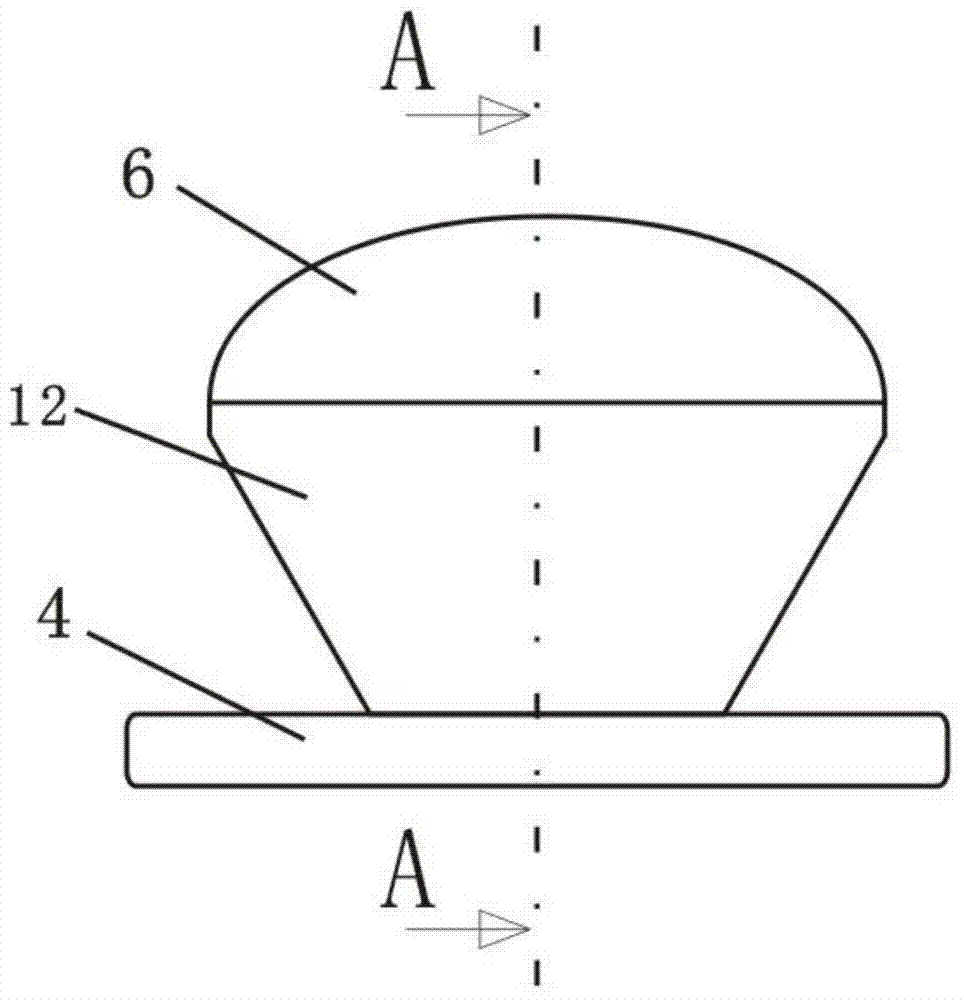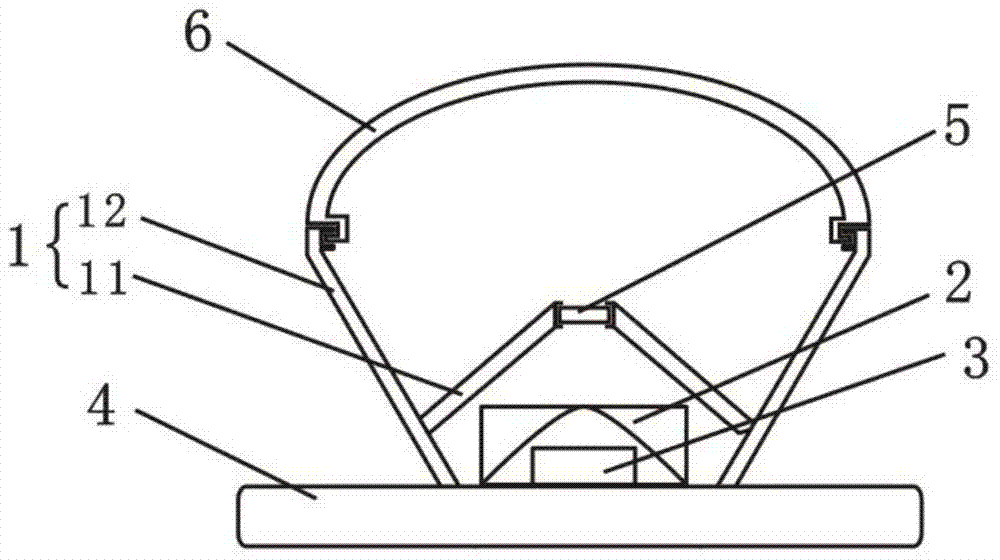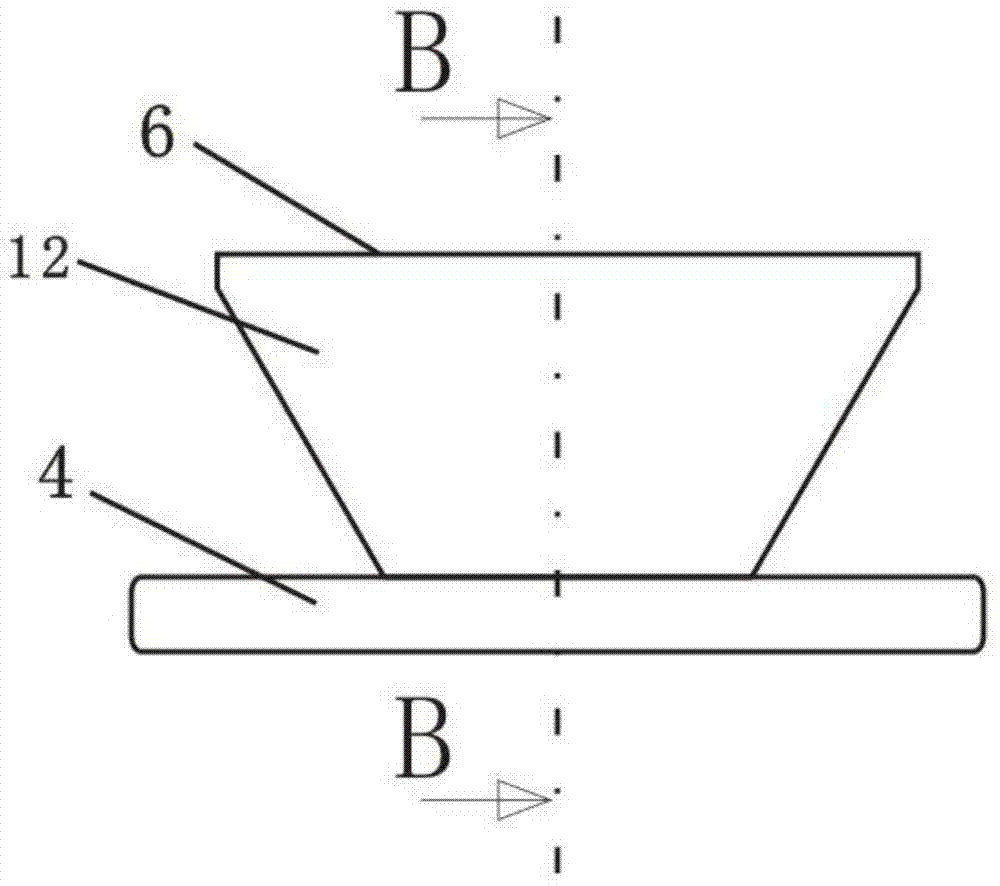Remote fluorescent LED (Light Emitting Diode) device
A technology of LED devices and remote fluorescence, which is applied to lighting devices, components of lighting devices, light sources, etc., can solve problems such as low work efficiency, unacceptable, and rising costs, achieve high production efficiency and product qualification rate, and reduce equipment costs. Cost, effect of extending service life
- Summary
- Abstract
- Description
- Claims
- Application Information
AI Technical Summary
Problems solved by technology
Method used
Image
Examples
Embodiment 1
[0047] Rare earth fluorescent resin sheet 5 thickness: 2.3mm, radius 10.8mm; phosphor concentration: 4%; phosphor type: YAG yellow powder; distance between LED chip 3 and rare earth fluorescent resin sheet 5: 0.8cm; distance between light diffusion lampshade 6 and rare earth fluorescent Resin sheet 5 distance: 0.5cm; white paper thickness 0.1mm; white LED: 3W positive white light.
[0048]
Embodiment 2
[0050] Rare earth fluorescent resin sheet 5 thickness: 3.0mm, radius 8mm; fluorescent powder concentration: 4%; phosphor powder type: green powder + red powder; distance between LED chip 3 and rare earth fluorescent resin sheet 5: 2cm; distance between light diffusion lampshade 6 and rare earth fluorescent resin Sheet 5 distance: 4.5cm; white paper thickness 0.1mm; white LED: 3W warm white light.
[0051]
[0052] The data from the two examples show that the combination of the blue LED chip and the 30° lens has the best effect.
PUM
 Login to View More
Login to View More Abstract
Description
Claims
Application Information
 Login to View More
Login to View More - R&D
- Intellectual Property
- Life Sciences
- Materials
- Tech Scout
- Unparalleled Data Quality
- Higher Quality Content
- 60% Fewer Hallucinations
Browse by: Latest US Patents, China's latest patents, Technical Efficacy Thesaurus, Application Domain, Technology Topic, Popular Technical Reports.
© 2025 PatSnap. All rights reserved.Legal|Privacy policy|Modern Slavery Act Transparency Statement|Sitemap|About US| Contact US: help@patsnap.com



